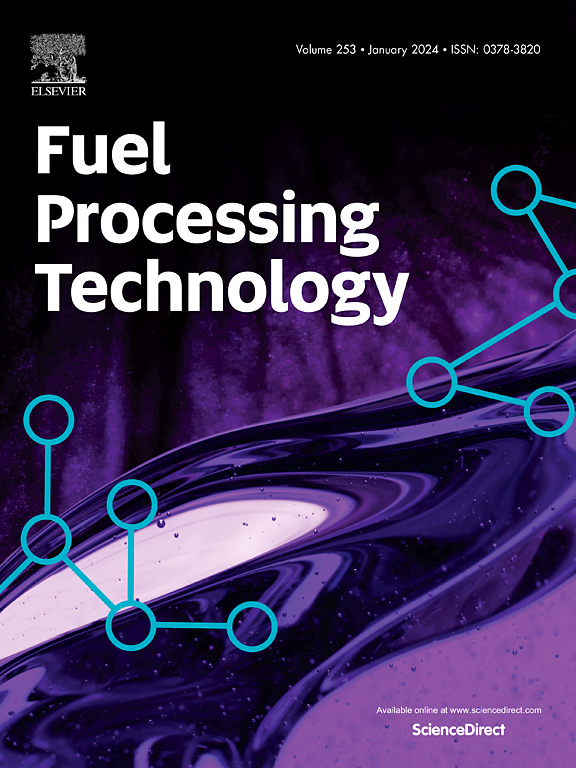A study on the co-firing of ammonia, hydrogen, and methanol with natural gas in a 100 MW NGCC process for carbon neutrality
IF 7.7
2区 工程技术
Q1 CHEMISTRY, APPLIED
引用次数: 0
Abstract
This study proposes a co-firing strategy involving ammonia, hydrogen, and methanol with natural gas in a 100 MW natural gas combined cycle (NGCC) power plant to reduce carbon dioxide emissions. Simulations were performed to assess fuel consumption, CO₂ and NOₓ emissions, and economic feasibility across different co-firing ratios. Co-firing hydrogen showed the most significant CO₂ reduction but resulted in increased NOₓ emissions. Ammonia and methanol co-firing moderately reduced CO₂ emissions and led to lower flue gas temperatures and NOₓ formation. Although co-firing is currently more expensive than using natural gas alone, techno-economic assessments under net-zero scenarios for 2030 and 2050 suggest improved cost competitiveness. With carbon taxes and fuel price changes, hydrogen becomes more economically viable by 2050, and methanol approaches the cost of natural gas. The results provide benchmarks for clean fuel integration in fossil-based power generation and highlight trade-offs between emissions and economic performance. This study contributes to the development of sustainable combustion strategies and supports policy and technology planning for decarbonized power systems.
100 MW NGCC工艺中氨、氢、甲醇与天然气共烧的碳中和研究
本研究提出了在100兆瓦天然气联合循环(NGCC)发电厂中,氨、氢和甲醇与天然气共烧的策略,以减少二氧化碳的排放。模拟评估了不同共燃比下的燃料消耗、CO₂和NOₓ排放以及经济可行性。共烧氢气的CO₂减少效果最显著,但导致NOₓ排放量增加。氨和甲醇共烧适度减少了CO₂的排放,并导致了较低的烟气温度和NOₓ的形成。虽然目前共烧比单独使用天然气更昂贵,但在2030年和2050年净零情景下的技术经济评估表明,成本竞争力有所提高。随着碳税和燃料价格的变化,到2050年,氢在经济上变得更加可行,甲醇的成本接近天然气。研究结果为清洁燃料在化石燃料发电中的整合提供了基准,并突出了排放与经济绩效之间的权衡。该研究有助于制定可持续燃烧策略,并为脱碳电力系统的政策和技术规划提供支持。
本文章由计算机程序翻译,如有差异,请以英文原文为准。
求助全文
约1分钟内获得全文
求助全文
来源期刊

Fuel Processing Technology
工程技术-工程:化工
CiteScore
13.20
自引率
9.30%
发文量
398
审稿时长
26 days
期刊介绍:
Fuel Processing Technology (FPT) deals with the scientific and technological aspects of converting fossil and renewable resources to clean fuels, value-added chemicals, fuel-related advanced carbon materials and by-products. In addition to the traditional non-nuclear fossil fuels, biomass and wastes, papers on the integration of renewables such as solar and wind energy and energy storage into the fuel processing processes, as well as papers on the production and conversion of non-carbon-containing fuels such as hydrogen and ammonia, are also welcome. While chemical conversion is emphasized, papers on advanced physical conversion processes are also considered for publication in FPT. Papers on the fundamental aspects of fuel structure and properties will also be considered.
 求助内容:
求助内容: 应助结果提醒方式:
应助结果提醒方式:


